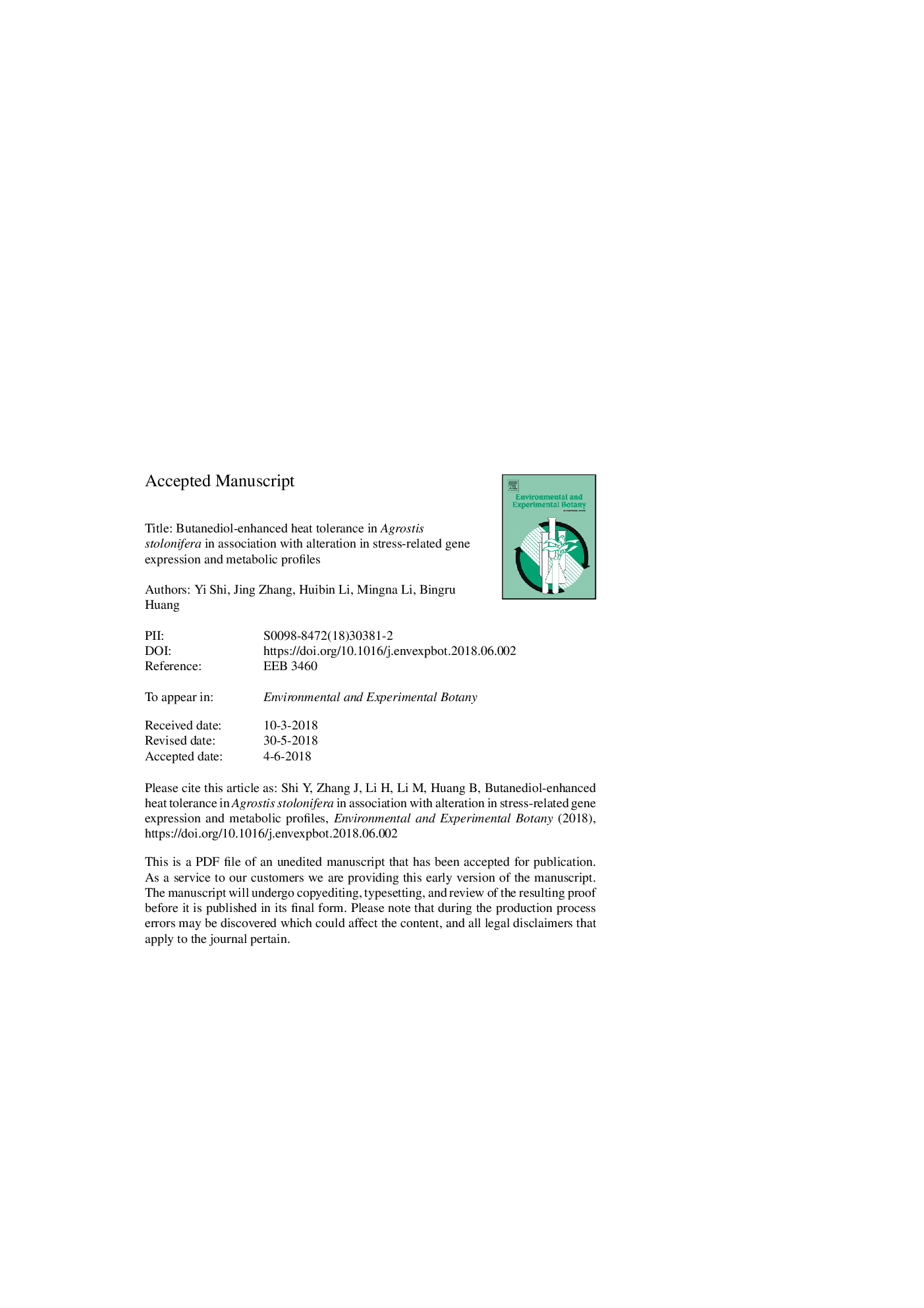| Article ID | Journal | Published Year | Pages | File Type |
|---|---|---|---|---|
| 8886914 | Environmental and Experimental Botany | 2018 | 26 Pages |
Abstract
Butanediol (BD) is a bacterial volatile compound which can activate induced-systemic resistance to diseases in plants, but its effects on abiotic stress tolerance are not well-known. The objectives of this study were to examine physiological effects of BD on heat tolerance in creeping bentgrass and to identify BD-responsive metabolites and genes contributing to effects of BD on heat tolerance. Creeping bentgrass plants (cv.' PennA4' and' Penncross') were treated with 2,3 -butanediol or water through foliar spray and were exposed to heat stress (35/30â¯Â°C, day/night) or optimal temperature (20/15â¯Â°C) in growth chambers. Creeping bentgrass plants treated with BD exhibited improved heat tolerance, demonstrated by higher visual quality and leaf photochemical efficiency when compared with the untreated control plants. Real-time PCR revealed that BD application resulted in up-regulation of genes related to cell elongation, metabolism, and stress responses in plants exposed to heat stress. Metabolite profiling identified a number of organic acids, sugars and sugar acids that accumulated due to BD treatment under heat stress. Results of the current study suggest that BD is effective in improving heat tolerance in creeping bentgrass, mainly through the enhancement of gene expression and metabolite accumulation involved in energy metabolism and stress signaling.
Related Topics
Life Sciences
Agricultural and Biological Sciences
Ecology, Evolution, Behavior and Systematics
Authors
Yi Shi, Jing Zhang, Huibin Li, Mingna Li, Bingru Huang,
